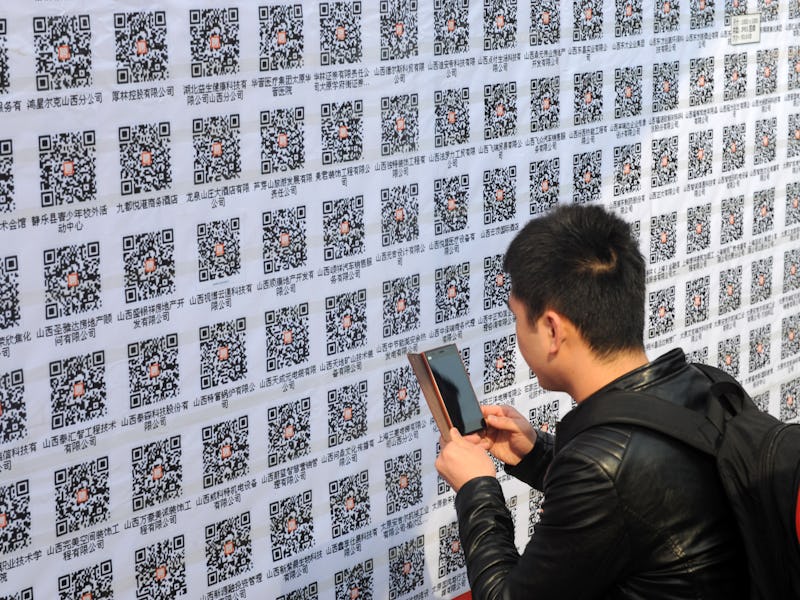Here's Why Chinese Cities are Almost Completely Cash Free
Chinese consumers made $5.5 trillion in mobile payments last year

In most cities in China, someone losing their phone is the same as losing their wallet. Nearly every payment people make is done using the smartphone apps WeChat or Alipay, and many vendors see cash as an inconvenience.
The New York Times published a first-hand account of China’s new way of doing business on Sunday that highlighting the near abandonment of cash. A recent survey by Tencent, the company that owns WeChat, claims that 92 percent of Chinese mobile internet users pick mobile app payments as their preferred method for offline transactions. And the change happened fast — the Times reports that cash was still king as little as three years ago, but now QR-code payments rule the city.
In 2016 alone, the Times reports that mobile-app payments moved $5.5 trillion, dwarfing the paltry $112 billion Americans paid using Apple Pay and other apps. Transactions in the U.S. and many other western countries still primarily use credit or debit cards or just plain old cash. But the residents of China’s biggest cities like Beijing and Shanghai have all but abandoned plastic payments for chat apps. They’re so prevalent that one woman left her ATM card in a machine for three weeks and didn’t notice until the bank called her.
Part of it is just convenience. WeChat pay and Alipay let customers scan a QR code and immediately transfer money from their digital wallet to a vendor. The payments even work offline, as the WeChat app links up to a user’s bank account, which lets them transfer money to their digital wallet. Once it’s in the wallet, there’s no data needed to make a payment. As for businesses, the QR code is much cheaper to get than a credit card reader like Square, making mobile payments easier for them as well.
“It has become the default way of life now,” Shiv Putcha, an analyst with the research firm IDC, told the Times. “Literally every business and brand in China is plugged into this ecosystem.”
And that means every business: Buskers stick a QR code on their sign so passersby can tip, taxi drivers take smartphone payments, and food stalls and grocery stores are all going cash- and card-free.
Customers at a market that accepts Alipay.
The Tencent survey found that 60 percent of respondents chose mobile payments because they were fast, 55 percent said they were easy, and 45 percent said they don’t even carry cash at all.
Of course, the app companies are taking a cut. As the Times reports, Tencent doesn’t specifically state what it makes from the app payments, but it managed to triple the “other services” category of its earnings in the fourth quarter of 2016, pulling in $940 million.
There’s no real logistical reason a similar system couldn’t start working in the U.S., except for the fact that it would take time to catch on. If QR codes start cropping up in shop windows, maybe it’ll be okay to leave bulky wallets and purses at home.